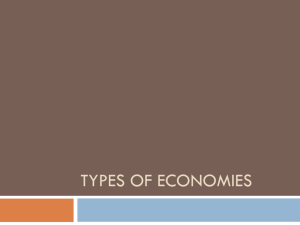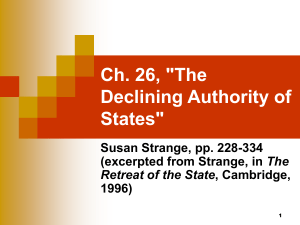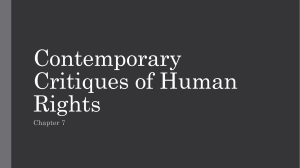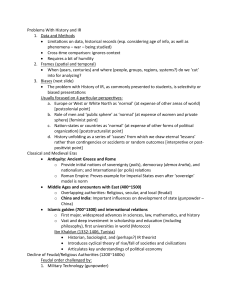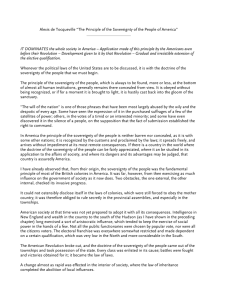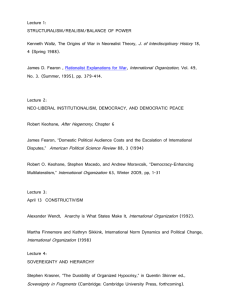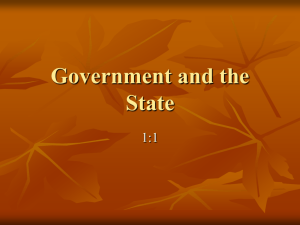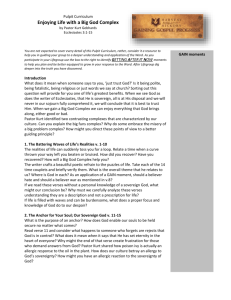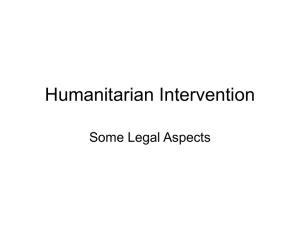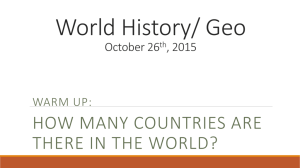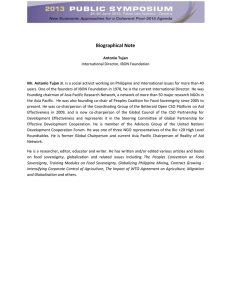Lecture 15-National Sovereignty
advertisement
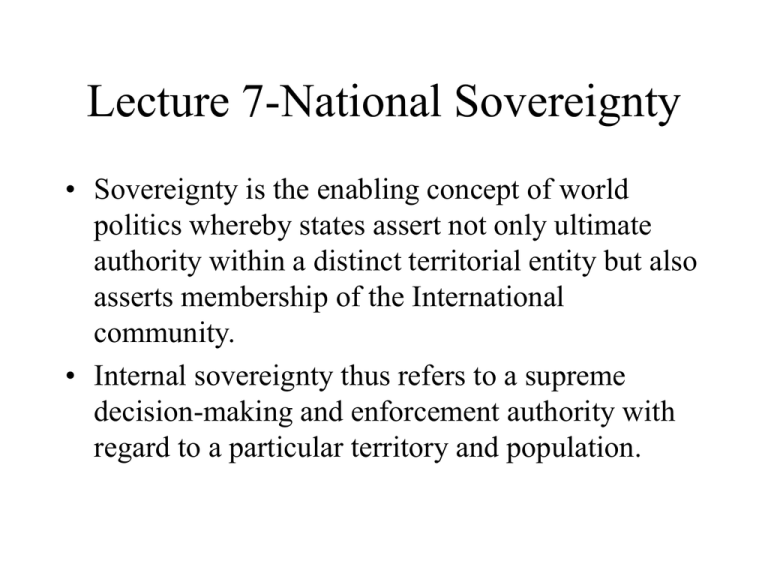
Lecture 7-National Sovereignty • Sovereignty is the enabling concept of world politics whereby states assert not only ultimate authority within a distinct territorial entity but also asserts membership of the International community. • Internal sovereignty thus refers to a supreme decision-making and enforcement authority with regard to a particular territory and population. Lecture 15.1 • External sovereignty on the other hand refers to its anti-thesis and absence of a supreme international authority and hence independence of sovereign state. • The Doctrine of state sovereignty necessarily leads to the concept of international anarchy: The idea of supreme authority with the state logically leads to denial of the existence of supra sovereign above the state. Lecture 15.2 • The development of the state system is usually synonymous with the right to exercise unrestrained power. On this view international law cannot circumscribe or set limits on state behaviour. Thus sovereign states are judges in their own cause, to pursue their conceived interests and can treat those who fall within their domestic jurisdiction in their own way. Lecture 15.3 • However in practice, the denial of supra-sovereign authority beyond the state has never meant that sovereign states are free to do as they please • The history of modern state system has been a conscious attempt to move away from the apparent rigidity of early formulations of the doctrine while retaining its more useful characteristics especially the idea of formal equality that it implies. Lecture 15.4 • The notion of absolute unlimited sovereignty while being useful and indeed an indispensable instrument to employ against the claims –by the pope emperor was never more than a convenient fiction in the development of modern state system. Lecture 15.5 • Increasing interdependence, the reciprocal nature of international law and membership of international organisations have thus led to the acceptance of the doctrine of “divided” sovereignty where supremacy is qualified either through consent or auto limitation e.g. UN Charter Article 2 par 1 Lecture 15.6 • recognizes that sovereign equality of member states yet exports them to settle their disputes by peaceful means. • Many scholars today regard the doctrine of sovereignty as not only dangerous (it can lead to unrestrained pursuit of national interest and is inimical to the development of international law.) but also as misleading (few, if any states are as impenetrable or as impermeable as it implies.) Lecture 15.7 • Arguments are often raised to the effect that integrative developments and complex interdependence on all fronts have rendered it, and the state centric bias it encourages obsolete. • But centrality of state has to be recognised.s
